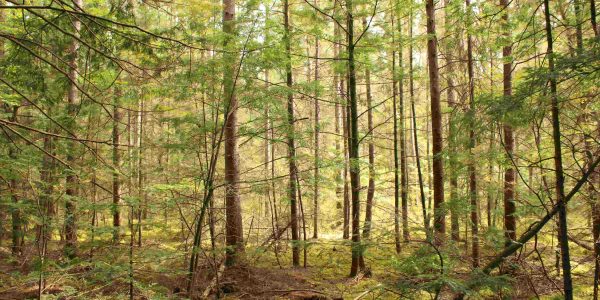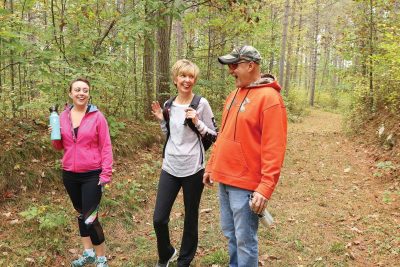
Navigating Nature: Tips for Safe and Responsible Outdoor Adventures
The Rhinelander area boasts natural beauty, awesome scenery, and year-round opportunities for outdoor recreation. Whatever your sport or outdoor activity of choice, here are some tips to keep in mind to make the most of your outdoor adventure and help ensure that the Rhinelander area and beyond can be enjoyed by future generations for many years to come.
Make a Plan
Planning ahead for your outdoor adventure makes for a more enjoyable and safe time while enjoying the outdoors. Be sure to check the weather before heading out and pack appropriate clothing, gear, and protective equipment for your activity of choice. Bring a map of the area or trails that you will be exploring, especially if there is limited cell phone service.
It’s not only important to plan ahead for your safety, but also to prevent damage to the area. Be sure that you’re following regulations and precautions of the area that you’ll be visiting. Research any permits, licenses, or trail passes that you may need to purchase before adventuring and complete necessary safety trainings. Make yourself aware of any special concerns or notices in order to help prevent deterioration or damage to the land.
Stay on Marked Pathways
While you’re traveling, be conscious of where the marked trails or campsites are. Staying in designated trail and campsite areas helps prevent damage to vegetation and minimizes soil erosion. If you’re traveling by boat, be knowledgeable of no-wake or marked areas to prevent shoreline erosion and disruption to the wildlife and vegetation. By staying on marked trails and pathways, you help ensure that the Northwoods will remain a beautiful, scenic place to be enjoyed for many years to come.
Pick Up and Dispose of Trash
Whatever you bring with you when you travel, needs to go back with you. This includes trash, food, and other waste. Clean up your campsite properly to ensure that no remnants are left behind as they can be harmful to the environment and wildlife, especially food remnants and cooking waste. While washing dishes or hands, reduce water contamination by washing at least 200 feet away from natural water sources such as lakes, rivers, streams and other shorelines.
Leave it How You Found it
Preserve ecosystems by leaving all natural materials how you found them. Some examples include rocks, shells, plants and trees, flowers, sticks, leaves, and wildlife. Other wildlife in the ecosystem depends on these materials for habitats or nutrients. Take many photos, but leave plants where they are to avoid transporting invasive species. Preventing the spread of invasive species can also be done by making sure to clean your outdoor boots, gear, or boat.
Practice Fire Safety
While campfires are a necessity for campers, it is important to take necessary precautions to ensure that your fire has minimal impacts on the environment. Before starting a fire, be aware of the fire danger and abide by burning restrictions or temporary bans in your area. This is important because very dry conditions are unsafe for burning- fire could spread very easily. Always use a fire ring or designated fire pit area when building your fire when possible, and check that your fire is out completely when you are finished using it. Purchase firewood from the area in which you will be burning it, as firewood commonly transports invasive species. Keep your campfire at a reasonable size and supervised at all times, especially if young children are present.
Always Respect Wildlife
When you are exploring outdoors, remember that you are among the habitat of many wildlife species, large and small. If you encounter an animal, observe them from a safe distance and don’t try to get too close for the safety of both them and you. If you are traveling with pets, keep them away from wild animals as well. Please do not attempt to feed wild animals. This interferes with their natural behaviors and human food is not healthy for them to eat. Thus, it is important to always store food and food waste in sealed containers where animals cannot get to them.
Be Mindful of Other Explorers
Do your part to help make the outdoors an enjoyable experience for everyone. Be mindful of others and the wildlife around you. Be courteous, yield to others, and share the trail. Know the rules of the trails or water if operating a boat or motorized vehicle. Keep noise levels at a respectful level and be aware of quiet hours while camping. If you are traveling with a pet, be sure to clean up after them and keep them under control.
For more information, visit https://lnt.org/why/7-principles/ .
Read about Wisconsin DNR outdoor rec requirements, safety education courses, and skills training courses at https://dnr.wisconsin.gov/Education/OutdoorSkills/safetyEducation
Wisconsin current fire danger map and burning restrictions: https://apps.dnr.wi.gov/wisburn/#/

Join our list
Sign up for our e-newsletter for travel tips, trip ideas & more

